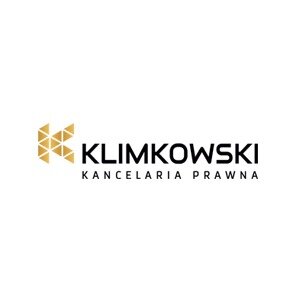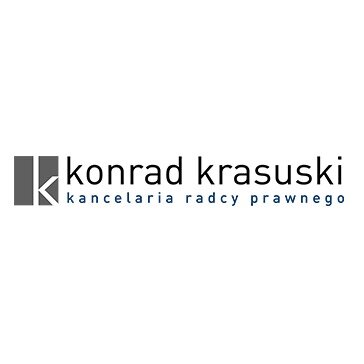Best Permanent Residency Lawyers in Poland
Share your needs with us, get contacted by law firms.
Free. Takes 2 min.
Or refine your search by selecting a city:
List of the best lawyers in Poland
About Permanent Residency Law in Poland
Permanent Residency in Poland allows non-citizens to reside indefinitely in the country, providing them with a status that doesn't expire as long as criteria are maintained. The process involves meeting specific legal requirements and ensuring one’s integration into Polish society. Key benefits of obtaining Permanent Residency include the ability to work without additional permits, access to social services, and the right to stay in Poland without the renewals required for temporary permits.
Why You May Need a Lawyer
While applying for Permanent Residency is straightforward for some, others may face challenges requiring legal assistance. Common situations include deciphering complex legal language, handling denied applications, navigating changes in eligibility requirements, addressing issues related to family reunification, and managing specific employment-based residency cases. A lawyer can assist in ensuring compliance with evolving laws and improving the chances of successful application through expert guidance.
Local Laws Overview
Polish Permanent Residency laws are governed by the Foreigners Act, which establishes the requirements and processes for obtaining and maintaining residency. Essential aspects include continuous residency in Poland, demonstrating stable income and housing, proof of adequate knowledge of Polish, and the absence of criminal records. Additionally, the laws emphasize the labor market, educational achievements, and family reunification as critical criteria for eligibility.
Frequently Asked Questions
What is the difference between Permanent Residency and a long-term EU Resident Card in Poland?
Permanent Residency allows you to live in Poland indefinitely, while a long-term EU Resident Card offers similar rights but also facilitates movement across EU countries under certain conditions.
How long must I reside in Poland before applying for Permanent Residency?
Generally, applicants must continuously live in Poland for a minimum of five years prior to applying for Permanent Residency.
Can Permanent Residency be revoked?
Yes, it can be revoked if the resident commits serious crimes, is deemed a national security threat, or leaves Poland for an extended period without maintaining ties.
Do I need to speak Polish to obtain Permanent Residency?
Yes, proving knowledge of the Polish language at a basic communication level is often a requirement.
What types of income are acceptable as proof of stability?
Regular employment income, business income, pensions, and in some cases, confirmable financial support from family are acceptable.
Can family members of Permanent Residents apply for residency based on family reunification?
Yes, family reunification is a legitimate ground for residency application, applicable to spouses and dependent minors.
Are students eligible for Permanent Residency?
Students can be eligible after completing their studies and securing employment or demonstrating income stability.
What is the application fee for Permanent Residency in Poland?
The fee varies but generally ranges around several hundred PLN; you should verify the current fee with the relevant authorities.
Where do I submit my Permanent Residency application?
Applications should be submitted to the local Voivodeship Office in the area of your residence in Poland.
Is it possible to work while holding a Permanent Residency permit?
Yes, Permanent Residents have the right to engage in employment without additional work permits.
Additional Resources
For reliable information and assistance, consider reaching out to:
- The Office for Foreigners (Urząd do Spraw Cudzoziemców) - oversees immigration policies and provides guidelines.
- Local Voivodeship Offices - handle applications and provide localized assistance.
- Legal Aid Centers - offer professional legal assistance, often at reduced fees or for free.
- Non-governmental organizations like the Helsinki Foundation for Human Rights - provide support to foreigners navigating Polish residency laws.
Next Steps
If you aim to secure legal assistance for your Permanent Residency application, start by consulting with a lawyer experienced in immigration law in Poland. Gather all necessary documents and schedule a consultation to discuss specific concerns or obstacles. You can also attend informational sessions provided by local immigration offices or NGOs to gain a clearer understanding of your residency application process. If appealing a decision, ensure timely submission of all relevant documents and legal arguments, guided by your lawyer.
Lawzana helps you find the best lawyers and law firms in Poland through a curated and pre-screened list of qualified legal professionals. Our platform offers rankings and detailed profiles of attorneys and law firms, allowing you to compare based on practice areas, including Permanent Residency, experience, and client feedback.
Each profile includes a description of the firm's areas of practice, client reviews, team members and partners, year of establishment, spoken languages, office locations, contact information, social media presence, and any published articles or resources. Most firms on our platform speak English and are experienced in both local and international legal matters.
Get a quote from top-rated law firms in Poland — quickly, securely, and without unnecessary hassle.
Disclaimer:
The information provided on this page is for general informational purposes only and does not constitute legal advice. While we strive to ensure the accuracy and relevance of the content, legal information may change over time, and interpretations of the law can vary. You should always consult with a qualified legal professional for advice specific to your situation.
We disclaim all liability for actions taken or not taken based on the content of this page. If you believe any information is incorrect or outdated, please contact us, and we will review and update it where appropriate.
Browse permanent residency law firms by city in Poland
Refine your search by selecting a city.

















